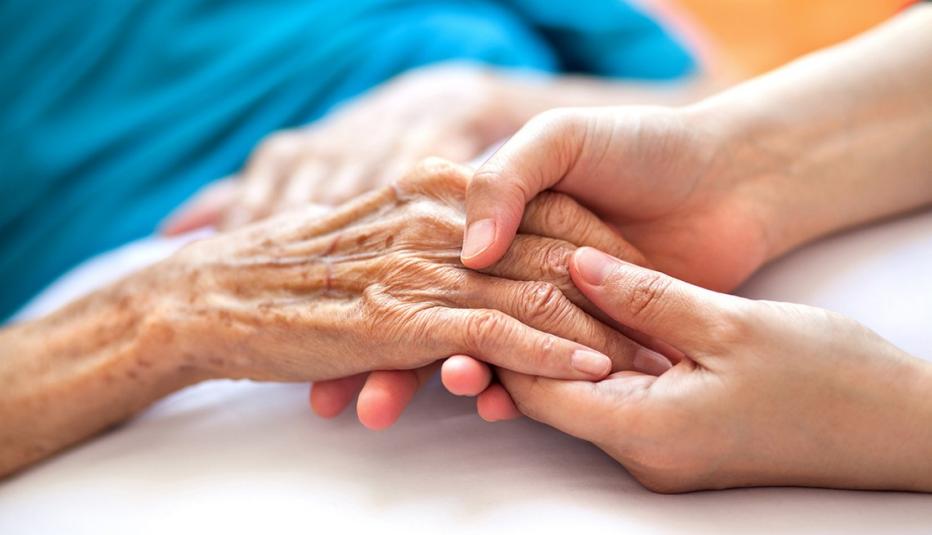AARP Hearing Center
Views of aging differ among older, younger Americans, survey finds


Although many younger Americans have a negative perception about aging, most older Americans report feeling pretty good about their lives, a new AARP survey reveals.
The national survey of 2,601 American adults found 67 percent of people age 60-plus are “satisfied” or “very satisfied” with their lives versus 61 percent of people age 18-39 and 60 percent of those respondents age 40-59. While about half (47 percent) of respondents age 18-39 believe it’s “normal to be depressed when you are old,” just 10 percent of those over 60 feel old age is a depressing life stage.
“The findings of this new survey are further confirmation of something a lot of people, especially older people, know instinctively and that is that our upper ages can be great,” said Jo Ann Jenkins, AARP chief executive officer.
“However, I think the survey also presents a fairly stark reminder that we’re all faced by a lot of negative associations around aging – some of it’s ‘in the culture’ and some of it may be self-generated, but it’s all damaging and, as this survey shows, it’s often wrong.”


Americans Getting Younger with Age
What may seem paradoxical to some is that for many Americans, the older they are, the younger they feel. Fifty-seven percent of those 60 or older feel ‘younger than I am’ compared to forty-two percent (42%) of those 40-59 and twenty-seven percent (27%) of respondents age 18-39, according to the survey report, AARP Disrupt Aging Research: Aging Confidence Survey.
Meanwhile, although older Americans expressed generally positive attitudes about aging, a sizable majority of survey respondents believe they’re overlooked as consumers. Among the offending industries, in the eyes of respondents:
- fashion (sixty-eight percent (68%) of respondents said older people are not as well served as other customers)
- technology (62%)
- sports (58%)
- entertainment (55%)
- housing (26%)
- healthcare (19%)


The report showed “ageism” is not a widely discussed issue. About forty percent (40%) of those surveyed think ageism against people who are older is a serious issue and 26 percent think ageism against younger people is a serious issue. Only about ten percent (10%) of respondents said they discussed ageism as an issue, although younger age groups are significantly more likely to talk about it compared to those 60 or older.
Younger adults hold more negative views across mental, physical, and social domains of the aging process. For instance, thirty-two percent (32%) of respondents age 18-39 said they were less optimistic as they aged, yet just seventeen percent (17%) of those over 60 felt the same way. While thirty-two percent (32%) in the youngest age group said they find it harder and harder to get up and around as they age, only eighteen percent (18%) of respondents over 60 agreed with that sentiment.
Room to Grow
The AARP survey found that almost four in 10 Americans have a more negative outlook about aging; accompanying a negative outlook might be sentiments that include “Learning is harder as we age,” “Older people are more set in their ways,” “We are less optimistic as we age,” and “We have less energy as we age.”
Such notions mean opportunity remains to change perceptions.
A healthy personal outlook on aging perceives that society supports people of all ages. According to the study, key positive attitudes about life as we age include:
- life has more possibilities
- we have the freedom to choose to live how we want to
- friends are a bigger part of our lives
- we’ll have healthcare coverage
- we’ll know how to better cope with stress.
To see how data from this study can help brands reframe aging, check out our data story, Is Your Brand Missing Out on the 50+ Market?
Methodology
The AARP online survey, offered in English and Spanish, was conducted between Nov. 21 and Dec. 15, 2016. It was a nationally representative sample on key demographics including age, gender, region and ethnicity. The survey polled 2,601 American adults of whom 1,027 respondents were age 18–39; 924 were age 45–59, and 650 were age 60 and up.
The research was designed and executed by AARP Research. For more information contact Patty David at PDavid@aarp.org. For media inquiries, please contact External Relations at media@aarp.org.
About forty percent (40%) of those surveyed think ageism against people who are older is a serious issue.































.jpg?crop=true&anchor=13,195&q=80&color=ffffffff&u=lywnjt&w=2008&h=1154)































